An excellent letter from a bishop whose diocese, as far as I can see, would be more at home in ANiC than the ACoC:
The Diocese of The Arctic

ANGLICAN CHURCH OF CANADA
Word from a bishop’s heart June 22, 2019
An open letter to my fellow Canadian Anglicans
Dear Friends in Christ,
I am writing to you out of love for Christ’s church, and because I feel a heavy burden of concern for the Anglican Church of Canada as we prepare to meet in just a few weeks in Vancouver at General Synod. I also write in the sincere hope that our church will rediscover and return to its purpose for existence.
As I begin, I want to say that I affirm my commitment to Jesus Christ and to upholding the biblical doctrines of the Anglican Church of Canada, the Anglican Communion, and the Holy Catholic Church. I also confirm my commitment to the biblical, traditional, and catholic definition of marriage as the lifelong union of one man and one woman, as set out in the Book of Common Prayer.
First, allow me to share some of my story as a disciple of our LORD Jesus Christ. Although I was raised in a faithful Christian home, I still had a hunger to know God more deeply. But it wasn’t until I was in my twenties that I became a serious disciple. Forty-six years ago, I said something simple: “God I’m giving up my life to follow you. I want to do what I said I would do when I was confirmed.” It was a serious prayer. I certainly didn’t understand what was happening but what I did know is that something had changed. Even my family realized I was not the person I used to be. At times my family was frustrated with me, and even my wife Rita was very concerned. She said, “David is not the man I married. I don’t know who he is.”
I was working as a logger with a pulp and paper company at that time and started taking a New Testament to work in my back pocket. At first, I didn’t have time to read it between skidder loads, but as my logging skills improved, I was able to cut enough trees before the skidder arrived that I had time to read my Bible. The forest became my theological school, with co-workers presenting me daily with Biblical criticism while the Holy Spirit guided me in how to lovingly answer them. Through reading Scriptures, God the Holy Spirit revealed to me the pre-eminence of Jesus who fulfilled the Old Testament’s covenants by His blood sacrifice on the cross. Jesus is the one and only Saviour. All of this is revealed clearly in Hebrews chapters 8, 9 and 10.
And so, my walk as a serious disciple began with God’s word becoming real to me and turning my life upside down, making me into a different person. Many years ago, it was very difficult to accept the revelation that my way – doing whatever seemed right to me, living according to my own desires and goals – was leading me to destruction. Today, many are asking me to turn away from God’s Way and accept something that His Word clearly prohibits. This is “my way” all over again. I just cannot.
Often, I have heard that the “spirit” is leading us to a new thing in changing the Marriage Canon to include same-sex marriage. But by what authority do we know this? As a bishop, I’ve thought a lot about authority. By what authority do I speak? By what authority do I remain silent? I certainly do not want to sound condescending or simplistic, as there is nothing simplistic about wrestling with Scripture. But there are some things that are very plain, and one of those is that we can find no approval of same-sex marriage or same-sex sexual relationships in holy Scripture.
However, our conversations, especially since 2013, have not been marked by serious wrestling with Scripture, but by the opposite. For the sake of having good “Christian disagreement,” the prerequisite seems to be that the Bible cannot be part of the conversation. The Primate’s Marriage Commission produced a document called This Holy Estate, but it is a document that certainly does not provide any serious engagement with Biblical texts on sexuality. Instead, it tells us that the Biblical texts prohibiting same-sex sexual expression don’t really mean what they say, and it goes on to selectively use other texts to oppose the clear teaching of Scripture. We would do well to remember Article XX: “Of the Authority of the Church” from our Anglican Articles of Religion, which warns, “…And yet it is not lawful for the Church to ordain anything that is contrary to God’s Word written, neither may it so expound one place of Scripture, that it be repugnant to another.”
In Isaiah 66:2,5 God said, “This is the man to whom I will look, he that is humble and contrite in spirit, and trembles at my word… Hear the word of the Lord, you who tremble at his word.” I believe that we are in a very dangerous place when we no longer “tremble at his Word.”
I see in many Anglicans a loving passion for all, and a desire to eradicate the injustices people have inflicted upon one another. I also share this passion and I realize that the hatred, isolation and prejudices experienced by so many people because of how they identify themselves sexually is both tragic and heart breaking. Although I will not support changing the national Church’s Marriage Canon, it is important to know that all people are welcomed and valued, and I will treat all who have bowed their knee to Jesus and confess Jesus as Lord God Almighty as my brothers and sisters in Christ.
However, in their zeal to correct injustices, some church leaders promote personal opinions that are profoundly at odds with biblical teaching and what is generally accepted as Christian doctrine. Now they have been emboldened to act in defiance of biblical authority, and in defiance of the traditional teaching of the Holy Catholic Church, and the counsel and permission of the Anglican Church of Canada and the Anglican Communion. As sad as it is for me to say it, I must call the promotion, teaching, and endorsing of same-sex marriage false teaching and heresy.
There is a conflict that cannot be reconciled: The Bible teaches against same-sex sexual activity, and does not endorse same-sex marriage. But our society does endorse these things and thus ignores the Bible’s teaching on marriage and sexuality. And so the church, the people called “out of darkness and into his marvelous light” (1 Peter 1:9), must choose whether to follow the world’s way, or God’s way.
I lay these questions before all delegates at General Synod:
- Who is this spirit who is leading some to reject Holy Scripture, the Word of God?
- By rejecting the Word of God from which faith develops, what “faith” do we defend?
In my ordination as priest I was charged with caring for Christ’s sheep, and as bishop I pledged to “banish and drive away all erroneous and strange doctrines contrary to God’s Word.”
I would be rejecting my ordination vows if I were to agree to redefining marriage and comply with the erroneous decision made at General Synod in 2016. Synods may change the definition of marriage, but that doesn’t change God’s definition of marriage. Synods may choose to walk without the wisdom of scripture, but that doesn’t make those synods wise decision-makers. It would not be wise to think that General Synod and the 68.4% of bishops who voted in favour of changing the church’s Marriage Canon are a majority. The Anglican Church of Canada is marginal in size, representing only 0.65% of the Anglican Communion and only 0.025% of the Christian church worldwide. It is spiritually dangerous to follow this marginal segment of the Christian church, those who think they alone have this prophetic message from God–a message that calls us to turn from Scripture and follow them.
As for me, I choose to remain with the Word of God and represent the gospel in the confines of the traditional Biblical doctrines of the Diocese of The Arctic, the Anglican Church of Canada, the Anglican Communion, and the Holy Catholic Church and to walk with those who choose likewise. As for those who choose to reject the Word of God and the doctrines of the Anglican Church of Canada in our Book of Common Prayer, and the Doctrines and precepts of the Anglican Communion, and choose instead to develop their own worldly doctrines and humanistic theologies, they must do so on their own. I will treat them with love and respect but as those who have walked away from the doctrines of the Christian faith. I will pray for their repentance, but I will not walk in rebellion with them.
It gives me no joy to write what I have written, nor do I write with a self-righteous attitude but with much concern, and as one who knows well his own sinful nature. I end with what I said at the beginning: I write this letter in the hope that the Anglican Church of Canada returns to its purpose for existence, offering the freedom that comes from being forgiven, and being made faithful disciples of our Lord.
Faithfully yours by grace,

Rt. Rev. David W Parsons
Bishop of the Arctic
Like this:
Like Loading...



 Of all the items of business on the General Synod agenda, a lot of attention has been given to the second reading of the motion to revise Canon XXI – On Marriage in the Church to include same-sex marriage.
Of all the items of business on the General Synod agenda, a lot of attention has been given to the second reading of the motion to revise Canon XXI – On Marriage in the Church to include same-sex marriage.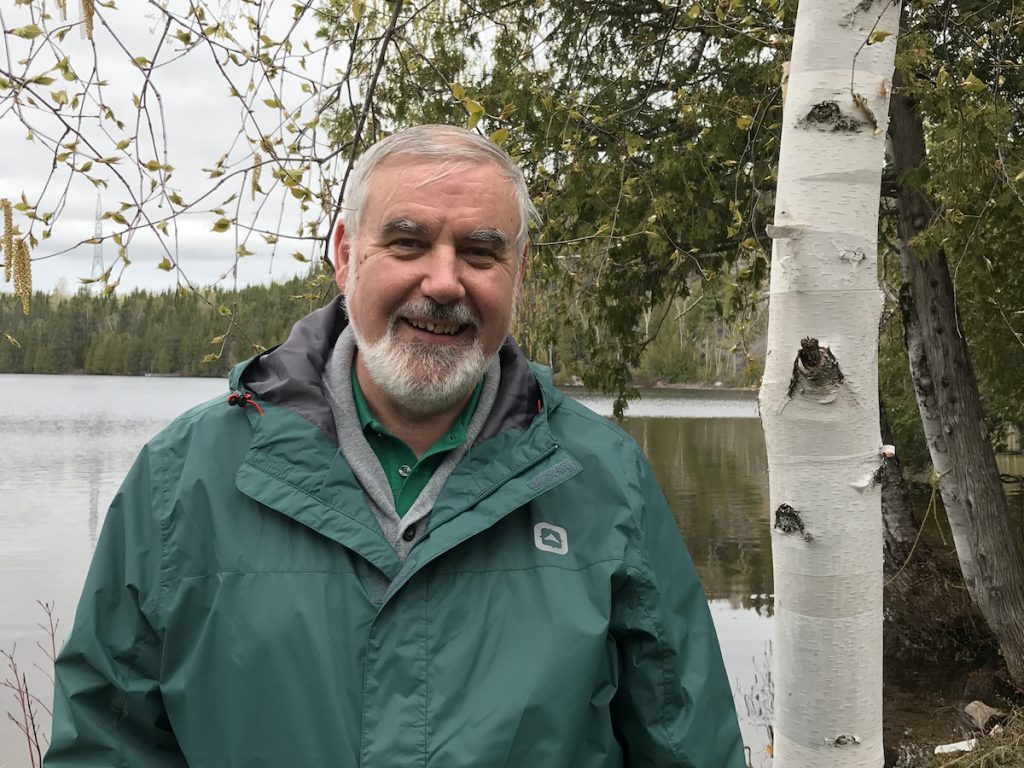 From
From 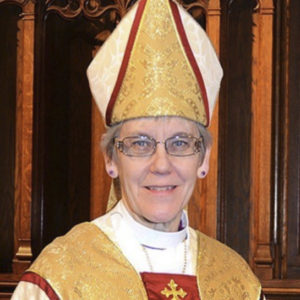
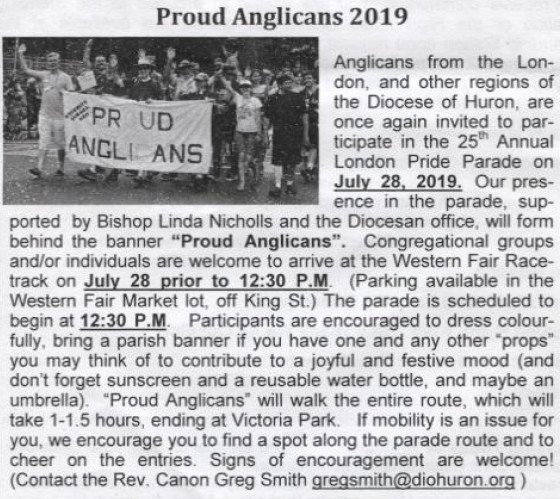
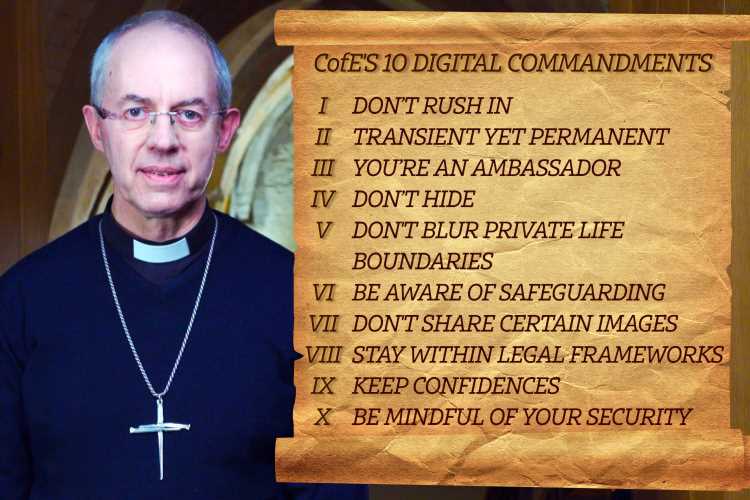

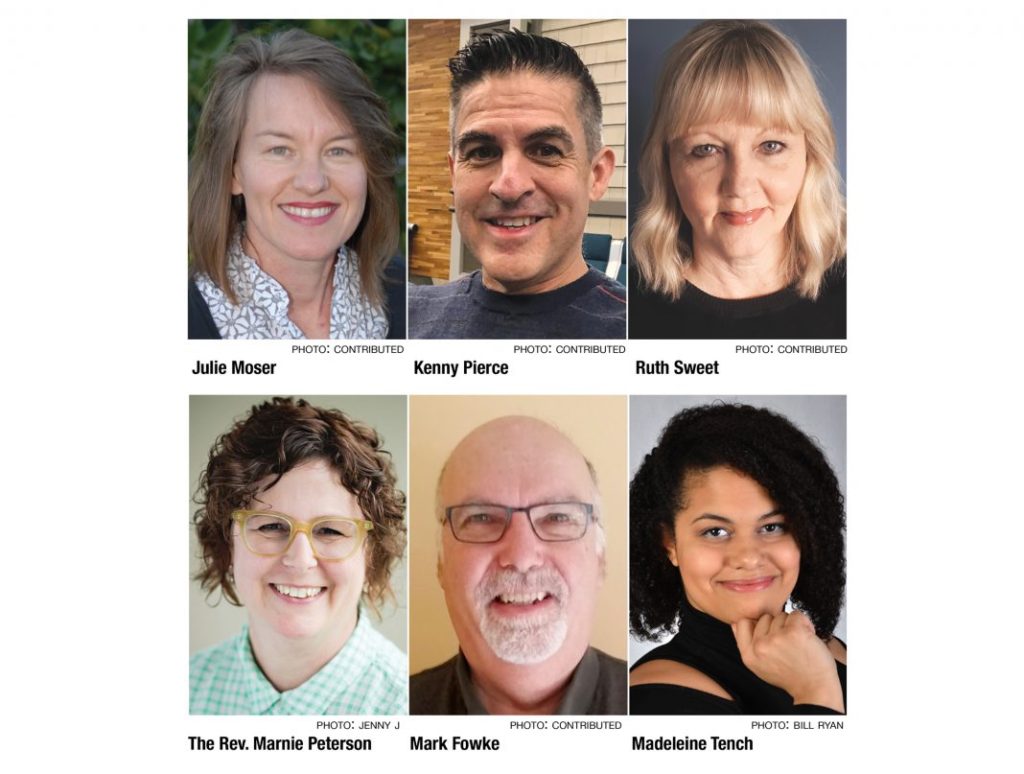 As delegates to General Synod prepare to vote on a second reading of Resolution A051-R2, potential changes to the Anglican Church of Canada’s marriage canon, the Anglican Journal’s editorial staffers have given much consideration to our task. What should we write? What should readers hear before the vote?
As delegates to General Synod prepare to vote on a second reading of Resolution A051-R2, potential changes to the Anglican Church of Canada’s marriage canon, the Anglican Journal’s editorial staffers have given much consideration to our task. What should we write? What should readers hear before the vote?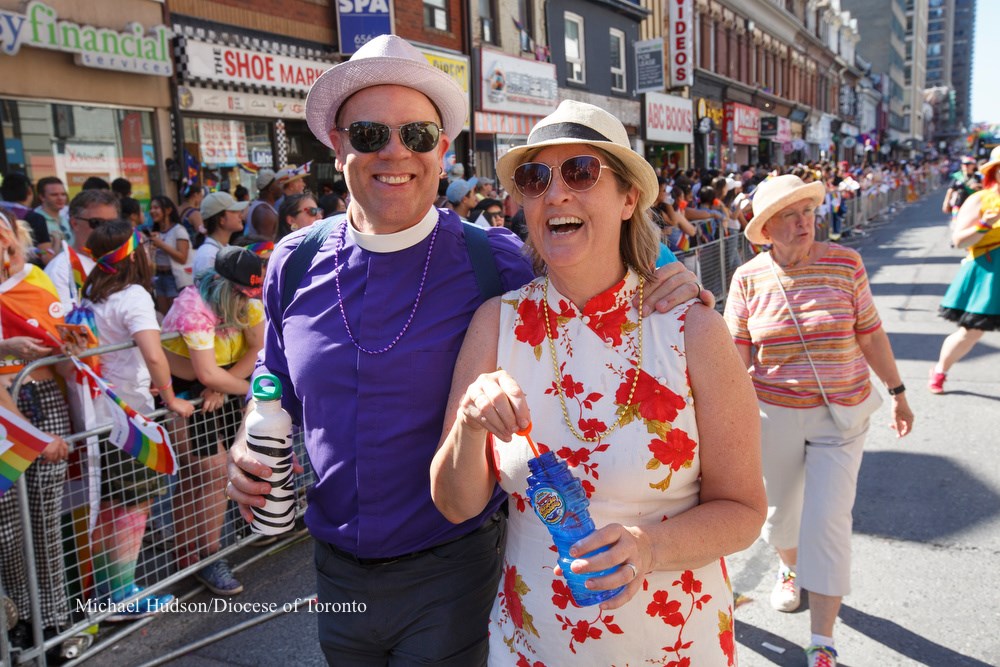 So was bishop Kevin Robertson:
So was bishop Kevin Robertson: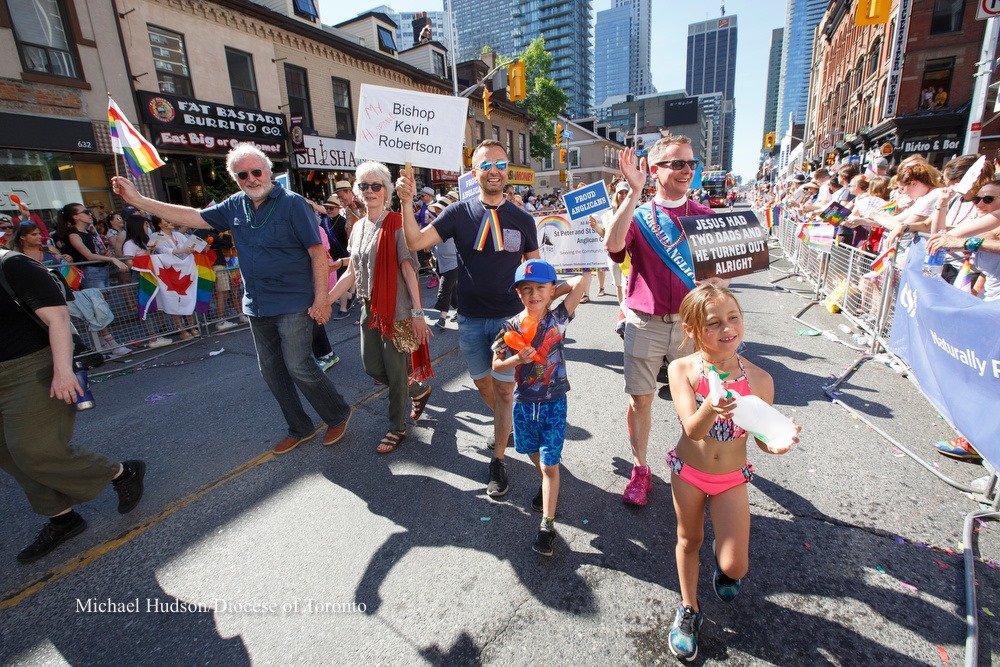
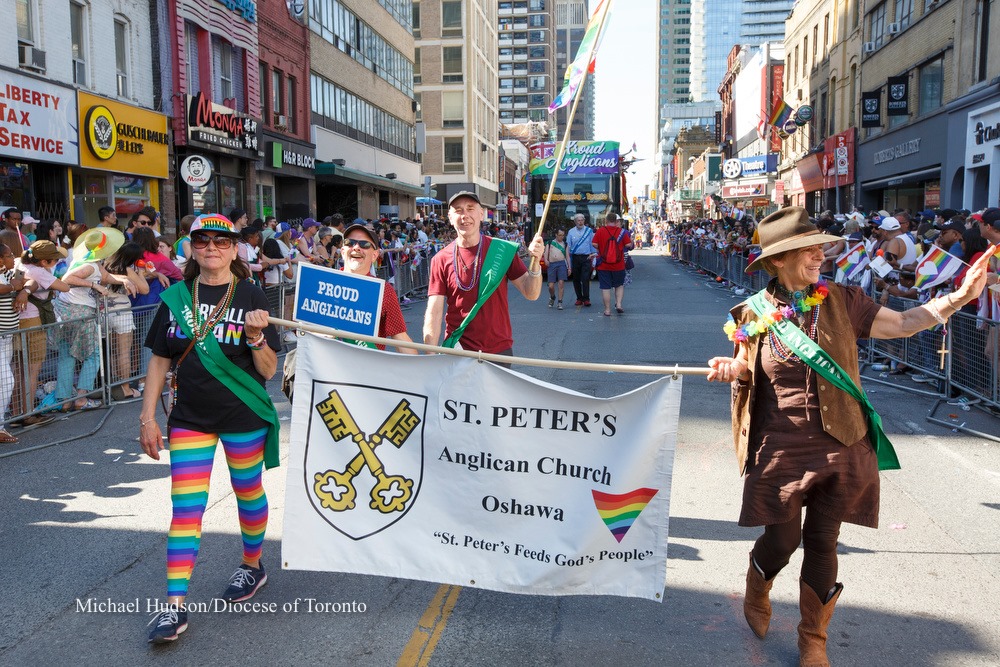
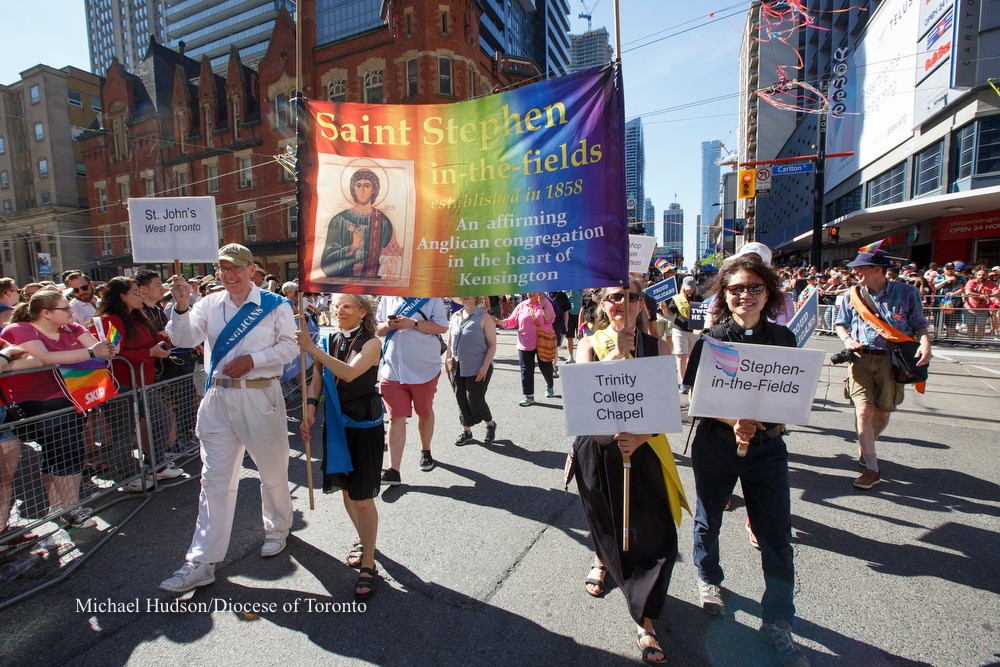
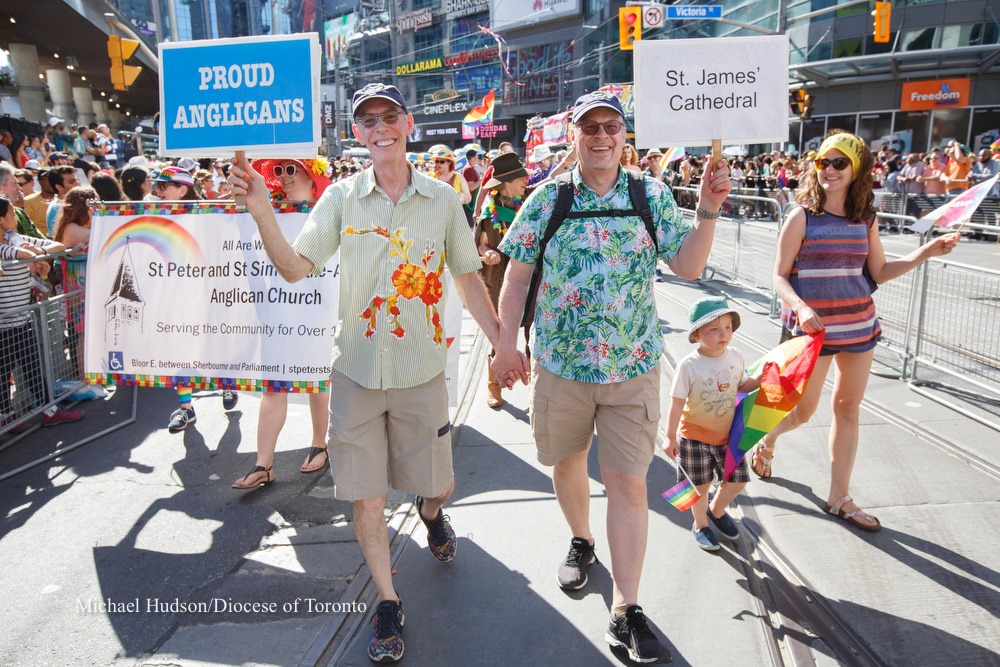
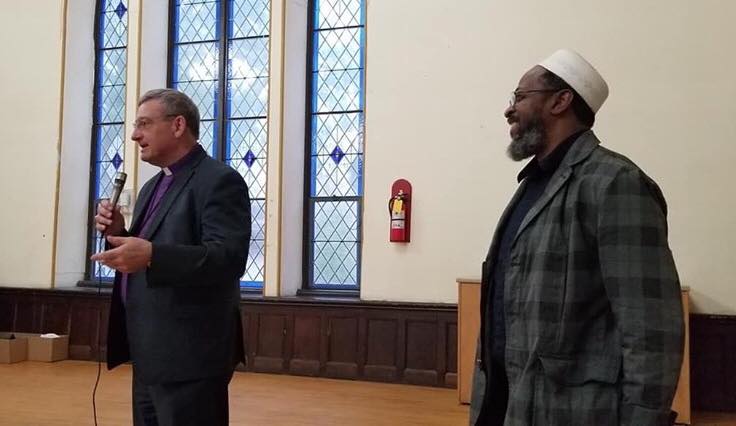 At 8:41 p.m., the exact time of sundown on May 30, 2019, the imam turned to face the east and issued the call to prayer. Dates and water were passed out to break the daily Ramadan fast.
At 8:41 p.m., the exact time of sundown on May 30, 2019, the imam turned to face the east and issued the call to prayer. Dates and water were passed out to break the daily Ramadan fast.